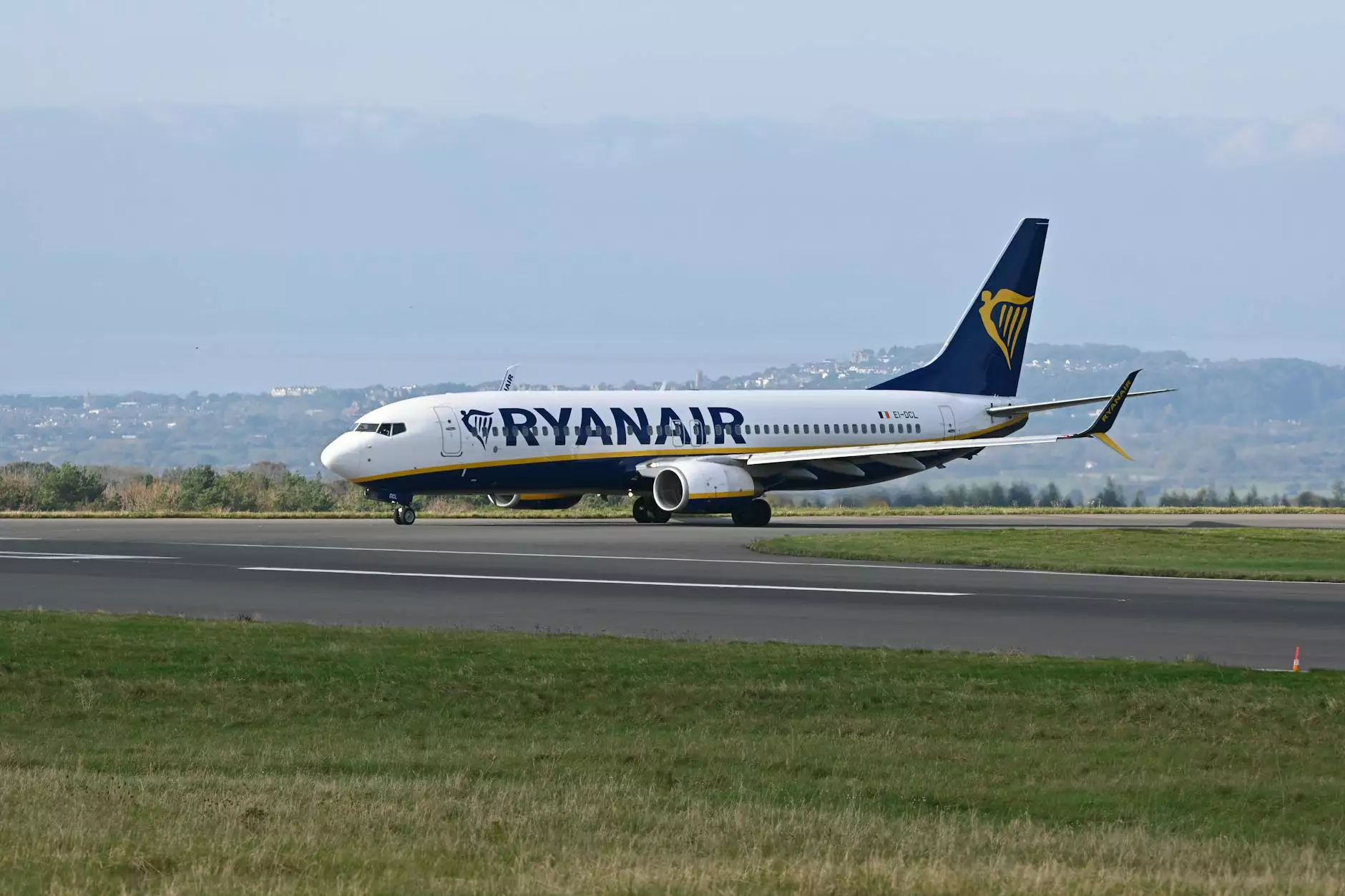Maximizing Business Efficiency with Air Tracking Cargo Services

In today’s fast-paced global market, businesses are continually seeking innovative solutions to improve their logistics and supply chain operations. One of the most transformative technologies in recent years has been air tracking cargo. This cutting-edge technology not only enhances the efficiency of shipping operations but also provides invaluable data that empowers businesses to make informed decisions.
The Evolution of Air Tracking Cargo
The logistics and transportation industry has undergone a significant transformation with the advent of air tracking systems. Initially, air freight was a simple mode of transport with minimal tracking capabilities, often leading to inefficiencies in inventory management. However, advancements in technology have allowed companies to track their cargo in real time, offering unprecedented visibility into the shipping process.
What is Air Tracking Cargo?
Air tracking cargo refers to the use of digital technologies to monitor the movement of goods transported via air freight. This includes real-time GPS tracking, automated notifications, and data analytics that provide detailed insights into shipment status. With air tracking cargo, businesses can:
- Ensure timely deliveries by monitoring flight schedules and cargo status.
- Minimize losses through immediate awareness of delays or discrepancies.
- Improve customer satisfaction with precise tracking information available to clients.
Benefits of Utilizing Air Tracking Cargo
Adopting air tracking cargo technology can offer numerous advantages for businesses across various sectors. Here are some of the key benefits that businesses can gain:
Enhanced Visibility and Transparency
The most significant advantage of using air tracking cargo is the enhanced visibility it provides. Knowing where your shipment is at any given moment allows businesses to:
- Proactively address issues: If a shipment is delayed, businesses can take immediate action to mitigate any potential disruptions.
- Keep stakeholders informed: Regular updates can be shared with customers and partners, fostering trust and reliability.
Improved Efficiency and Cost Savings
With real-time tracking, companies can optimize their shipping routes and schedules. This improvement leads to:
- Reduced operational costs: Efficient route planning minimizes fuel consumption and delays.
- Better resource allocation: Understanding shipment timelines allows companies to manage their resources, including labor, more effectively.
Superior Risk Management
In logistics, risk management is critical. Using air tracking cargo systems helps businesses to:
- Identify potential risks: Early identification of delays or shipping issues allows for timely intervention.
- Implement effective contingency plans: Companies can develop strategies to address common shipping challenges based on data analytics.
The Role of Shipping Centers in Air Tracking Cargo
Shipping centers play a crucial role in the efficiency of air tracking cargo systems. These centers serve as the hubs where goods are consolidated, sorted, and dispatched to their final destinations. Here’s how shipping centers contribute to the effectiveness of air cargo tracking:
Streamlined Operations
Shipping centers utilize advanced technologies to streamline their operations, which, in turn, enhances the air tracking process. Automation and information systems allow for:
- Faster processing times: Quick sorting and loading of items reduce delays in the supply chain.
- Accurate inventory management: Real-time data helps track what is in stock, and what is in transit.
Integration with Air Tracking Technologies
Modern shipping centers are equipped with integrated systems that work alongside air tracking technologies. This integration ensures:
- Real-time updates: Continuous tracking from shipping centers to final delivery points.
- Efficient communication: Improved collaboration between shipping centers, airlines, and customers.
Transportation and Airports: The Backbone of Air Tracking Cargo
Transportation and airports are essential components of the air tracking cargo ecosystem. Understanding their roles can provide deeper insights into how air freight operates.
Transportation Networks
The transportation networks that connect shipping centers to airports are critical for ensuring timely cargo delivery. Efficient transportation includes:
- Road and rail systems: Reduce the time taken to deliver goods to air transport hubs.
- Last-mile delivery solutions: Enhance the efficiency of getting products from airports to their final destinations.
Airports as Logistics Hubs
Airports are no longer just points of departure and arrival; they have evolved into global logistics hubs. The benefits provided by modern airports include:
- High-capacity facilities: Capable of handling significant freight volumes, boosting overall efficiency.
- Advanced security systems: Ensuring safe transport of goods while complying with international regulations.
Future Trends in Air Tracking Cargo
The future of air tracking cargo is bright, driven by innovation and technological advancements. Here are several trends that businesses should watch for:
Increased Use of AI and Machine Learning
Artificial intelligence and machine learning will play pivotal roles in predictive analytics for air cargo tracking. These technologies can:
- Predict potential delays: By analyzing historical data, AI can forecast inefficiencies before they occur.
- Automate reporting: Streamlining communication and reporting processes through intelligent systems.
Blockchain Technology
Blockchain is set to revolutionize air tracking cargo by providing secure and transparent transaction records. This technology allows for:
- Increased trust: All parties involved can verify data integrity in real time.
- Enhanced traceability: Every step in the shipping process is recorded, providing comprehensive tracking capabilities.
Sustainability and Eco-Friendly Initiatives
As businesses move towards sustainable practices, air tracking cargo can contribute by reducing waste and optimizing routes, leading to:
- Lower carbon footprints: More efficient logistics operations minimize environmental impact.
- Compliance with regulations: Meeting global standards for sustainability in logistics.
Conclusion: The Competitive Advantage of Air Tracking Cargo
In conclusion, embracing air tracking cargo services not only enhances logistical efficiency but also provides a competitive advantage in the marketplace. By leveraging real-time data, businesses can improve visibility, reduce costs, and enhance customer satisfaction. With the growing role of technology in logistics, it's essential for companies to stay ahead of trends in air freight and cargo tracking.
As the logistics landscape continues to evolve, businesses that invest in cutting-edge air tracking solutions will be better positioned for success in the global economy. By utilizing platforms like cargobooking.aero, companies can take full advantage of the benefits that air tracking cargo brings, ensuring they remain leaders in their respective industries.









